Set 232
1301. 10-7/8" tall:
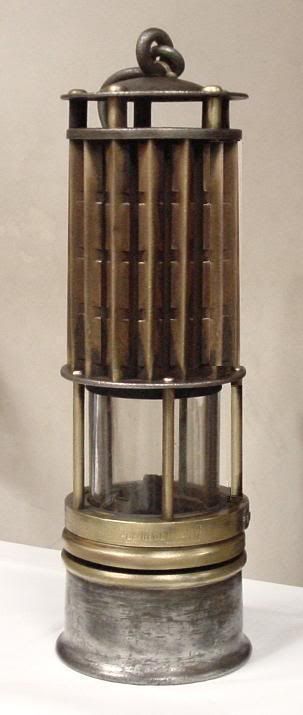
1302. 11" long:
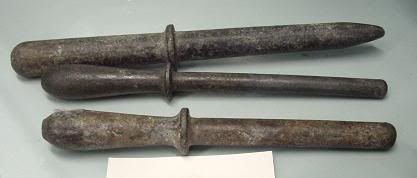
Larger image
1303. 48" tall:
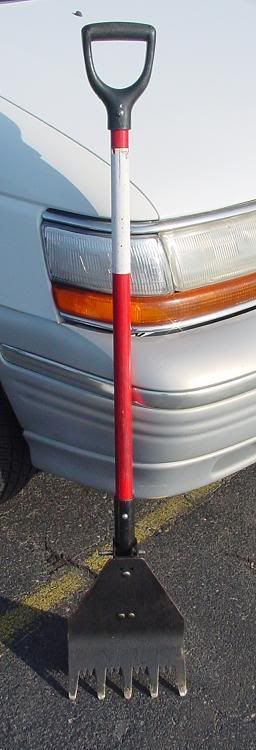
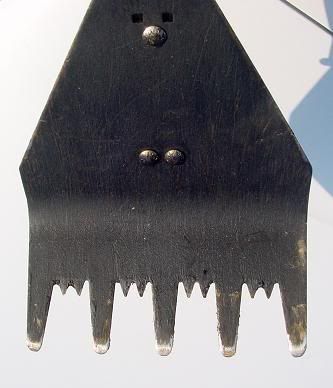
1304. 6" long:
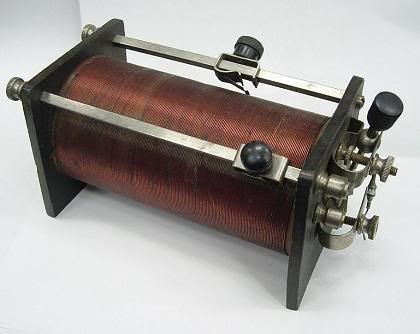
Larger image
Another version of the same device, 4" long, from the 1950's:
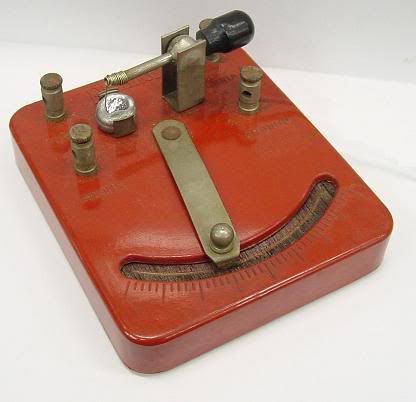
1305. Submitted by a visitor from Texas who is looking to identify this piece of equipment:
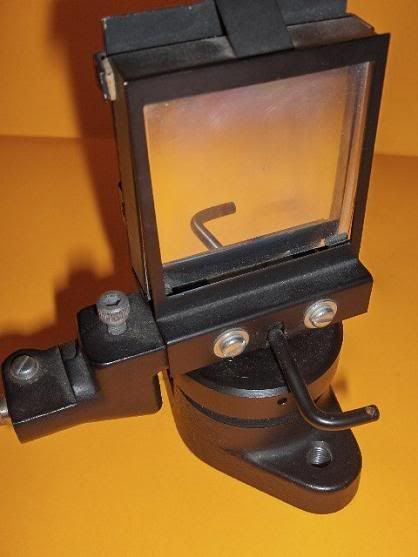
The owner's description of it:
A view of the back:
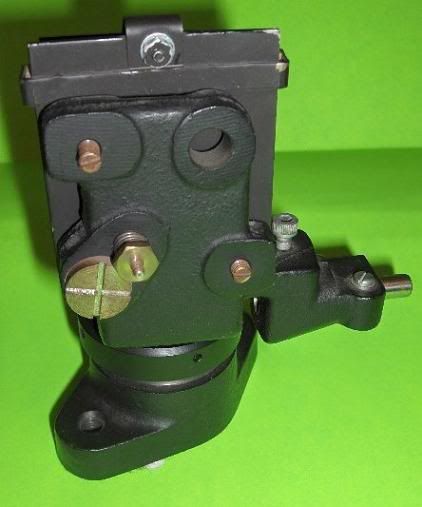
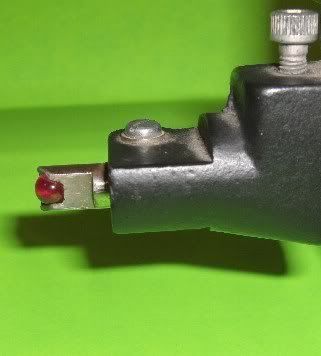
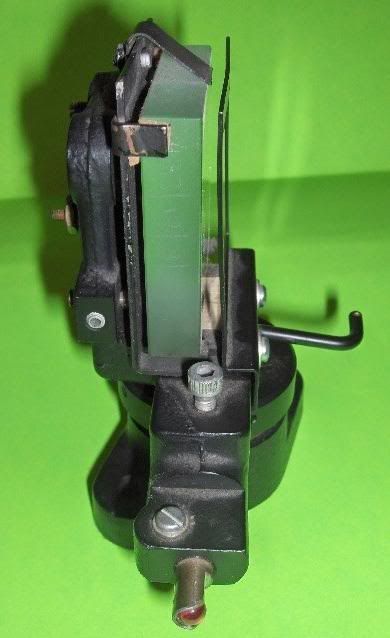
1306. 8" long, for more guesses on this one take a look at Neatorama:
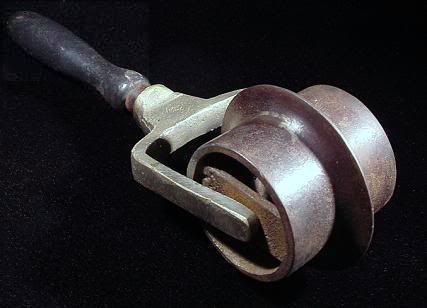
To submit photos, click on the profile link at the upper right to find my email address.
Answers
Last week's set is seen below, click here to view the entire post:
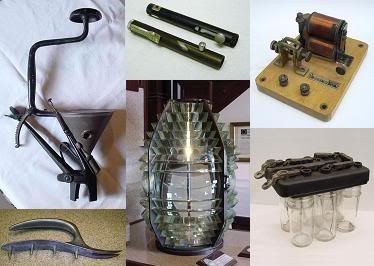
More discussion and comments on these photos can be found at the newsgroup rec.puzzles.

1302. 11" long:

Larger image
1303. 48" tall:


1304. 6" long:

Larger image
Another version of the same device, 4" long, from the 1950's:

1305. Submitted by a visitor from Texas who is looking to identify this piece of equipment:

The owner's description of it:
There is a 2-1/4" square piece of prism/quartz crystal or similar, which is highly mirrored and is iridescent with varying colors like a holograph.(You cannot see through the glass.) It sits on a rotational frame with very smooth ball bearing 360-degree movement. (Its precision suggests that this object was intended to spin at high revolution.) It has an arm protruding out one side which has a small red ball about 1/4" round. It may be a bulb containing fluid like a thermometer, or it may be solid ruby colored glass ball. But it glows if light strikes it just right. It is shielded so that the red ball is concealed from the back.
The back side of the prism mount has 4 or 5 highly precise leveling screws as if a very finite placement is required. These adjustments would serve to tilt or plane the prism. The prism is about 1/2 to 5/8" thick, and has numerals scratched into the side with a scratch awl or engraving tool. The numerals are 33/12/3/10/1.
The entire item except for the glass is very heavy metal. There is no writing anywhere on the piece except the numerals "903" stamped on the bottom of the mount. As small as it is, this thing weighs a surprising 2lbs, 10 ounces.
A view of the back:



1306. 8" long, for more guesses on this one take a look at Neatorama:

To submit photos, click on the profile link at the upper right to find my email address.
Answers
Last week's set is seen below, click here to view the entire post:

More discussion and comments on these photos can be found at the newsgroup rec.puzzles.

9 Comments:
1301 Miners lamp.
1302 Marlin spikes.
1303 Ice scraper??
1304 "Cat's Whisker and Tuning Coil for crystal radio receiver.
1306 Concrete groove roller.
By Canem, at 5/15/2008 6:37 AM
Canem, at 5/15/2008 6:37 AM
1301 - coal miner's lamp (explosion-proof)
1302 - ship's belaying pin
1303 - front of car :-)
1304 - variable inductor (and gallium crystal) for a crystal radio
1306 - tool for making the grooves in concrete sidewalks
By Anonymous, at 5/15/2008 6:54 AM
Anonymous, at 5/15/2008 6:54 AM
1303 - asphalt shingle remover.
By Aaron, at 5/15/2008 8:16 AM
Aaron, at 5/15/2008 8:16 AM
1302 -- miners safety lamp
1302 -- they look like belaying pins, but those are usually made of wood, these seem to be metal, perhaps used
for a similar purpose but on land?
1303 -- shingle shovel
1304 -- crystal radios, The first one is pretty nice, I used to own one just like the second
By Unknown, at 5/16/2008 1:16 PM
Unknown, at 5/16/2008 1:16 PM
1301: yep looks like a lamp to me
1302: kinda look like crappy honing steels for knives
1303: might be a tool for tearing up shingles. the slots let you grab and pry the nails up.
1304: definitely a radio
1305: looks like it belongs on a laser table or somthing you would see in a high tech lab.
1306: groovy
By Anonymous, at 5/20/2008 2:11 PM
Anonymous, at 5/20/2008 2:11 PM
1305 is a diffraction grating. It is used to seperate wavelengths in optical instruments. See wiki for details :)
By Anonymous, at 5/22/2008 6:16 AM
Anonymous, at 5/22/2008 6:16 AM
1305 is part of a monochromator.(http://en.wikipedia.org/wiki/Monochromator) The flat glass is a diffraction grating. The red ball (hard glass or ruby) is part of the mechanism that, turning the grating, selects a particular wavelenght. Usually, the ball is in contact with a flat moving surface whose position is linearly related with selected wavelenght.
This mechanism was used to simplfy the mechanics on old (and not so old) IR/vis/UV spectrophotometers.
By Anonymous, at 6/27/2008 1:18 PM
Anonymous, at 6/27/2008 1:18 PM
I have some items that I would like to ID as well.
Could you recommend how I go about this?
Thanks
Charles in Alaska
By Anonymous, at 9/11/2008 2:42 PM
Anonymous, at 9/11/2008 2:42 PM
Sorry. I'm not here today.
If you can help ytitnedi figure out what I have, contact me at
eskimosall2@yahoo.com
Thanks
Charles in Alaska
By Anonymous, at 9/11/2008 2:44 PM
Anonymous, at 9/11/2008 2:44 PM
Post a Comment
<< Home